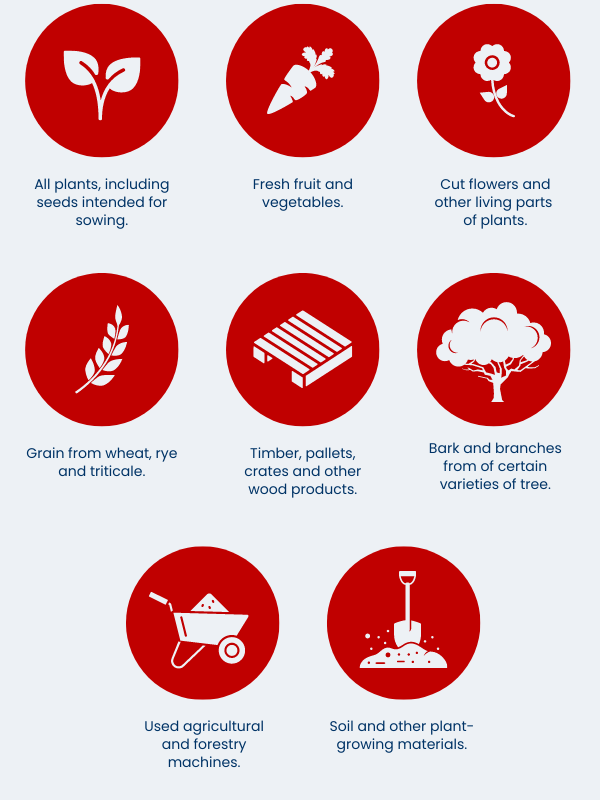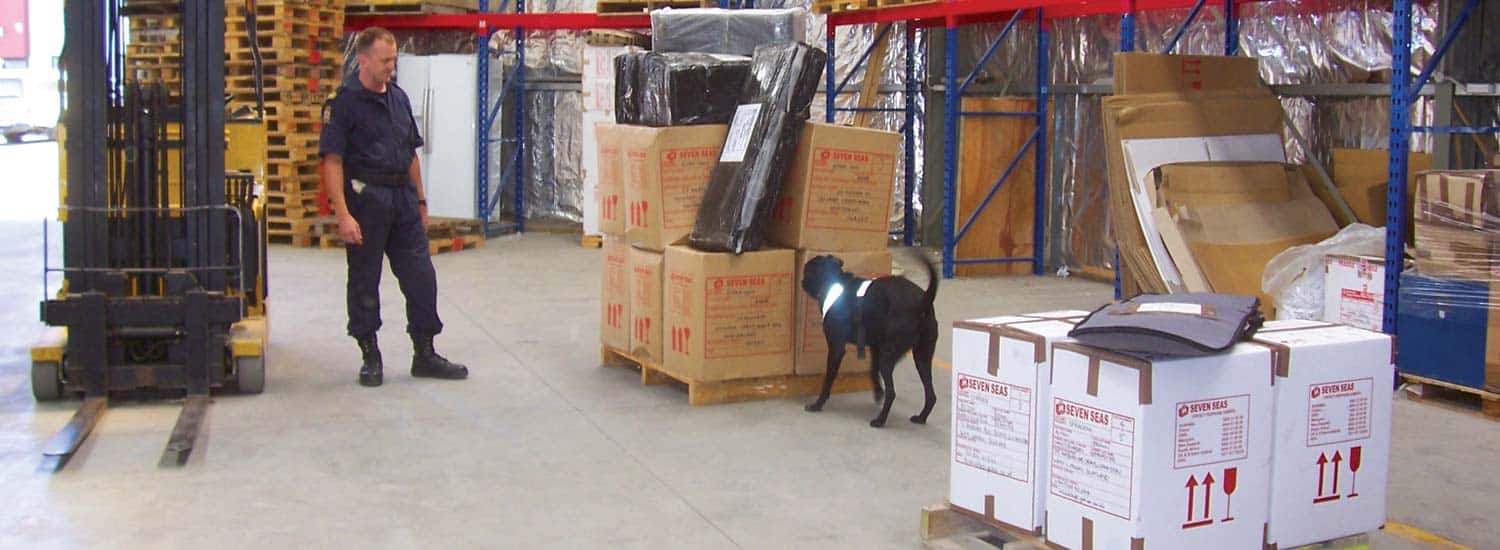Before packing, check this list of items prohibited from entering a particular country or region.
Key takeaways
- A phytosanitary certificate is an official document issued by National Plant Protection Organisations (NPPO) certifying that a shipment of plants, plant products, and other regulated articles complies with the importing country's requirements.
- To get a phytosanitary certificate, you must apply to the NPPO of the exporting country, arrange for the NPPO to inspect your consignment, and, if your items pass, wait for the certificate to be issued.
- It takes between a few days and several weeks to get a phytosanitary certificate.
What is a phytosanitary certificate?
A phytosanitary certificate is an official document issued by National Plant Protection Organisations (NPPO) certifying that a shipment of plants, plant products, and other regulated articles complies with the importing country's requirements. These mandatory certificates prove that the items you're shipping are free from harmful pests and diseases, helping you avoid fines and delays.
Application for phytosanitary certification starts by providing your NPPO with a description of the consignment, its origin country, and the botanical names of each plant. They will then arrange an inspection of the items by officials who check for pests and diseases that could pose a risk to the importing country's ecological health. If they discover issues, treatments, such as fumigation, may be required before the certificate can be issued.
Please note that Seven Seas Worldwide does not ship plants or plant-related produce via any of our services. For more information, reference our Prohibited Goods page.
...stay informed and conduct thorough research before shipping to ensure your goods comply with phytosanitary requirements.
Phytosanitary meaning
The meaning of "phytosanitary" relates to the health and safety of plants and is most commonly used regarding international trade requirements. It encompasses all measures to prevent the introduction and spread of pests and diseases in plants and plant products.
Phytosanitary standards are critical in international trade to protect the agricultural industry from harmful organisms. Measures to control the spread of contaminants include inspections, treatments and certifications to ensure that plants and plant products meet the health requirements of destination countries. These are guided by cross-border agreements and standards, such as those set by the International Plant Protection Convention (IPPC), which aim to facilitate safe trade while preventing the spread of invasive species and pests.
How to get a phytosanitary certificate
To get a phytosanitary certificate, plant exporters must follow several steps:
- First, submit an application to the NPPO of the exporting country, including details about the consignment, such as the type and quantity of products, and their origin and the destination country.
- Next, the NPPO will arrange for an inspection of the consignment by authorised officials, who will check for pests, diseases, and other harmful organisms. If they discover any issues, treatments like fumigation may be necessary.
- Finally, once the consignment passes inspection, the NPPO will issue a phytosanitary certificate that includes details about inspection results, treatments applied and a declaration that the shipment meets the importing country's phytosanitary requirements.
The phytosanitary certificate must accompany the shipment at all times.
It's advisable to apply well in advance of your desired shipping dates to allow for any potential delays, such as additional treatments or to accommodate inspection officials' availability.

What products require a phytosanitary certificate?
Products that require a phytosanitary certificate include live plants, seeds, soil, bulbs, tubers, cut flowers, fruits, vegetables, and grains. Wood and wood products, such as timber, pallets, and crates, also often require certification to ensure they are free from wood-boring insects.
Please note that regulations vary depending on the importing country, so it's essential to stay informed and conduct thorough research before shipping to ensure your goods comply with phytosanitary requirements.

How long does it take to get a phytosanitary certificate?
To get a phytosanitary certificate takes a few days to several weeks. However, the time it takes varies depending on the exporting country's procedures, the complexity of the inspection, and the importing country's requirements.

Who issues a phytosanitary certificate?
Phytosanitary certificates are issued by the NPPO of the exporting country, which assesses whether the consignment meets the phytosanitary requirements of the destination country.
If the consignment meets the necessary standards, the NPPO will issue a stamped phytosanitary certificate, which includes inspection details, any treatments applied and a declaration that the consignment complies with the importing country's requirements.
Only Authorised Certification Officials (ACOs) within each nation's NPPO are certified to carry out inspections and issue certificates. ACOs play a crucial role in maintaining the integrity of the phytosanitary certification process, ensuring that international trade in plants and plant products is conducted safely.
The following are NPPOs for several popular worldwide countries:
- Australia: Department of Agriculture, Fisheries and Forestry (DAFF) - Plant Biosecurity
- Canada: Canadian Food Inspection Agency (CFIA) - Plant Health
- China: General Administration of Customs of the People's Republic of China (GACC) - Animal and Plant Quarantine
- European Union: European Commission - Plant Health and Biosecurity
- Ireland: Department of Agriculture, Food and the Marine - Plant Health
- New Zealand: Ministry for Primary Industries (MPI) - Biosecurity
- South Africa: Department of Agriculture, Land Reform and Rural Development
- UK: Animal and Plant Health Agency (APHA)
- USA: Animal and Plant Health Inspection Service (APHIS)











